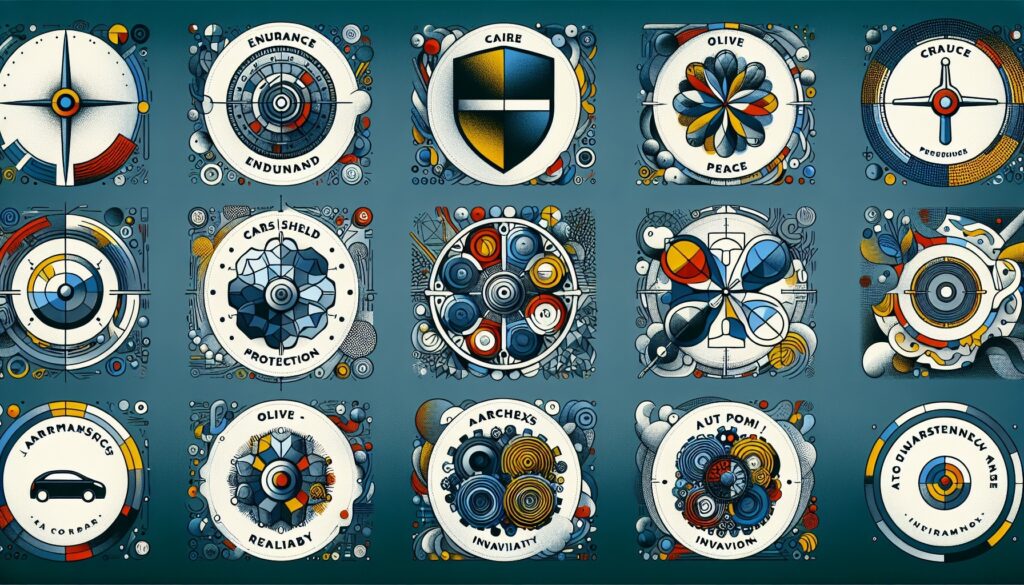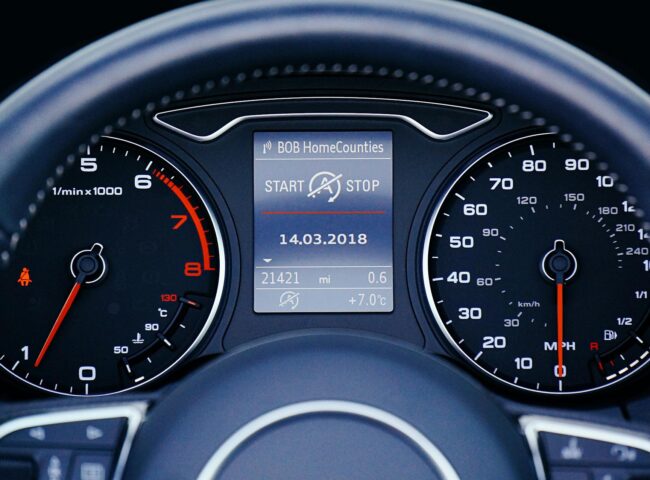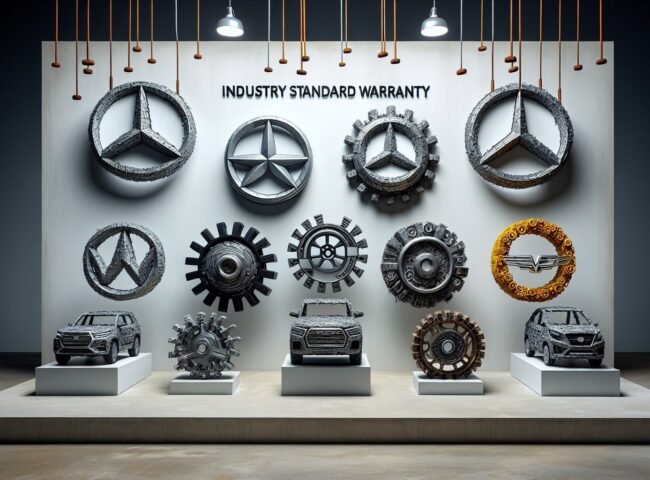When buying a used car, one key factor to consider is the warranty on used vehicle coverage. Used car warranties protect you from unexpected repair costs after the original factory warranty expires. Understanding these warranties is crucial because they can save you money and provide peace of mind. This article will help you explore the benefits and pitfalls of used car warranties, the different types available, and important factors to consider before purchasing one.
Warranty on Used Vehicles
Used car warranties provide financial protection against unforeseen repair costs, but understanding the various types and key terms is essential for informed decision-making.
Factors to consider before buying a used car warranty include the vehicle’s age, mileage, reliability, and potential repair costs. Evaluating these can help determine the need for a warranty. Alternatives to used car warranties include saving for repairs, mechanical breakdown insurance, and leasing a vehicle—each offering different advantages based on financial situation and vehicle needs.
Understanding Used Car Warranties

A used car warranty is designed to protect against unexpected repair costs, providing a safety net for owners who might otherwise face significant expenses due to defective parts and workmanship. These warranties differ from new car warranties, which come standard with new vehicles and cover a wide range of issues for a specific period or mileage. When the factory warranty expires, purchasing a used vehicle warranty can continue to offer this crucial coverage.
The main benefits of used car warranties include protection from expensive repairs and replacements caused by defective vehicle parts. However, comprehending the variety of available warranties and the key terms tied to them is crucial for informed decision-making.
Types of Used Car Warranties
Certified Pre-Owned (CPO) warranties provide coverage for vehicles that meet specific criteria and quality specifications, often extending the factory warranty or offering similar coverage for a limited term. For example, Kia’s CPO warranty offers up to 10 years/100,000 miles on the powertrain, including additional benefits like roadside assistance and rental car coverage.
Other common types of used car warranty coverage include bumper-to-bumper, powertrain, and drivetrain warranties. Each type offers different levels of protection, with bumper-to-bumper being the most comprehensive, covering almost every part of the vehicle except for wear-and-tear items.
Key Terms in Warranty Coverage
It’s vital to grasp the key terms in warranty coverage. Original warranties for new cars provide bumper-to-bumper and powertrain coverage for a specific period or mileage. Once these expire, an extended warranty or service contract can be purchased to cover certain repairs and services at an additional cost.
A thorough review of your warranty booklet is needed to comprehend the scope and limitations of the coverage. This booklet will detail which parts and repairs are covered, any exclusions, and who is responsible for the repairs. Knowing these details can help you avoid surprises when you need to use your warranty.
Evaluating Warranty Options for Used Vehicles

It’s critical, when purchasing a used car, to ascertain whether a warranty is available and to comprehend its coverage. Different warranties offer varying levels of protection, each with specific terms, conditions, duration, and cost. Used car warranty costs can range from $1,500 to $4,000, with monthly payments typically ranging from $100 to $200.
You can buy a used car warranty after purchasing the vehicle, as third-party providers offer more flexibility compared to some auto manufacturers. An essential step in finding the best fit for your needs and budget is to compare used car warranty prices and coverage.
Certified Pre-Owned (CPO) Warranties
Certified Pre-Owned (CPO) warranties offer several advantages, such as longer warranty periods and added peace of mind. These warranties generally involve a thorough inspection and reconditioning process before the warranty is issued to ensure vehicle reliability. Manufacturer-certified pre-owned warranties are typically more comprehensive due to rigorous inspections and reconditioning processes.
Additional perks of CPO warranties often include roadside assistance, rental car reimbursement, and trip interruption coverage. However, limitations include the requirement to purchase from franchised dealerships of the brand and potential deductibles.
Extended Warranties
Extended warranties cover a range of vehicle components and systems, depending on the product purchased. These warranties can be purchased from dealerships or third-party providers, offering flexibility in terms and coverage. One major advantage of third-party warranties is the ability to visit any licensed repair facility.
Most extended car warranty plans come with extra benefits like roadside assistance, rental car coverage, and trip interruption. However, a potential downside is that customers are generally only allowed to cancel their extended warranty within 30 days for a full refund.
Remaining Factory Warranty
To check if a used car still has an active factory warranty, you can:
- Contact the manufacturer
- Check the vehicle’s service history
- Look for the date when the vehicle was first placed in service on a vehicle history report, such as a Carfax Warranty Check report.
Often, factory warranties can be transferred to new owners, though the process and requirements may vary between manufacturers. Knowing whether a factory warranty is transferable is crucial during the purchase of a used vehicle.
Factors to Consider Before Buying a Used Car Warranty

Prior to purchasing a used car warranty, evaluate if you can handle an unexpected repair of $1,000 without resorting to debt. Assessing the car’s dependability and average repair costs can help determine if a warranty is valuable. You can research average repair costs for different makes and models by visiting websites such as RepairPal, Edmunds, and YourMechanic. These websites offer important insights into the projected costs of different repairs.
Consider the following factors when choosing an extended warranty or mechanical breakdown insurance:
- Coverage plans
- Reliability of paying out claims
- Whether the plan is automaker-backed or from a third-party extended warranty company
- Whether mechanical breakdown insurance is a better option
Vehicle Age and Mileage
Warranties for older vehicles are typically more expensive due to their increased susceptibility to serious issues. The likelihood of using an extended warranty increases for older or less reliable vehicles. Higher mileage vehicles generally have a greater chance of mechanical failure and may benefit more from an extended warranty.
However, high mileage on a vehicle increases the cost of warranty coverage because these vehicles are more prone to expensive repairs. Cars with over 150,000 miles on their odometer can often be covered by warranties from third-party providers. These warranties offer continued protection for older vehicles.
Reliability and Repair Costs
When deciding whether a warranty is worth the investment, it’s vital to evaluate the used vehicle’s reliability. Vehicle reliability can be assessed through model reliability ratings and customer reviews. Regular maintenance and timely servicing can help avoid major repair costs.
Used car warranties might be worth it for vehicles with high repair costs or poor reliability records. Considering these factors can help you decide if a warranty will provide the necessary coverage.
Coverage Plans and Cost
Cost factors for used car warranties include:
- The vehicle’s age
- Mileage
- Make
- Model
- Deductible
- Coverage level
The cost of a used car warranty can vary based on these factors. Mechanical breakdown insurance often covers only specific components like the engine and transmission.
The cost of a used car warranty can vary widely, usually falling between $1,500 and $4,000. This range is affected by factors such as coverage, length of the term, and the specific provider offering the warranty. Monthly payments for used car warranties usually range from $100 to $200. Comparing different coverage plans and their costs can help you find the best fit for your needs.
Top Used Car Warranty Companies

The best used car warranty companies offer comprehensive vehicle protection plans that can cover unexpected repair costs. The top choices for used car warranty providers are:
- Carchex
- Endurance
- CarShield
- Rapid Auto Protection
- Olive
Ranking these companies involved reviewing over 40 extended warranty providers based on:
- Reputation
- Coverage
- Cost
- Transparency
- Customer experience
Gathering over 2,200 data points on extended car warranty plans helped identify the best options and determine if extended warranties worth considering.
Carchex
Carchex has over 20 years of experience and holds an A+ rating from the Better Business Bureau (BBB). One of the plans offered by Carchex is the Powertrain Plus plan, which has a term length of up to 10 years or 250,000 miles.
Carchex is well-regarded for its customer service, backed by its long-standing industry presence and BBB accreditation. However, the Powertrain Plus plan does not include maintenance plans.
Endurance
Endurance offers comprehensive extended car warranties that are designed to cover a broad range of repairs and services. The company provides several coverage levels tailored to meet various customer needs and vehicle conditions.
Endurance’s extended warranties come with several key benefits including 24/7 roadside assistance, rental car benefits, and trip interruption coverage. Customer reviews for Endurance highlight the company’s strong customer service and ease of claims processing.
CarShield
CarShield offers a variety of vehicle service contracts designed to cover a range of potential repair needs for used vehicles. Their plans are customizable, allowing customers to choose coverage that best fits their specific needs and budget.
CarShield includes unique features such as roadside assistance, rental car coverage, and trip interruption services with its plans. They also provide flexible payment options, making it easier for customers to manage their warranty costs.
Rapid Auto Protection
Rapid Auto Protection offers extensive warranty coverage that includes both powertrain and bumper-to-bumper options, along with additional perks such as roadside assistance. Customer reviews indicate a high level of satisfaction with Rapid’s warranty services, particularly praising their customer service and the ease of the claims process.
Olive
Olive offers flexible warranty plans designed to meet various customer needs, including powertrain warranties. Their Powertrain Plus plan covers up to 3 years or 185,000 miles.
Is a Used Car Warranty Worth It?

The worthiness of a used car warranty depends on personal circumstances and factors that go beyond basic concerns such as eligibility and cost. Purchasing a warranty can be worth it based on financial considerations like lowering out-of-pocket costs.
Used car warranties can save significant out-of-pocket repair costs, making them valuable for high-mileage or older vehicles. However, buyers should consider the potential drawbacks of purchasing a used car warranty, such as cost, exclusions, and limitations in coverage.
Benefits of Used Car Warranties
Buying a used car warranty offers peace of mind by guaranteeing coverage for unforeseen problems. This predictability helps in budgeting by covering unexpected repair costs, thus offering financial protection against major repair expenses. For high-mileage cars, plans like Endurance Elite Benefits can be particularly beneficial, providing additional services and coverage for a year.
Moreover, having a used car warranty can enhance the resale value of your vehicle. Potential buyers often appreciate the existence of ongoing coverage, seeing it as a sign of a well-maintained vehicle and added value.
Potential Drawbacks
Buying a used car warranty can be an expensive endeavor, as manufacturer extended warranties usually come at a higher price than aftermarket options and offer more limited terms. Warranty providers frequently have exclusions, meaning not all parts or repairs will be covered. In fact, 42% of survey respondents reported that the specific part needing repair was excluded from warranty coverage.
There can be various limitations in coverage that make a used car warranty less appealing. Some limitations include:
- Repairs must be done at specific dealerships, limiting your options.
- Certain parts may be excluded from coverage.
- Damage considered wear and tear may not be covered.
- The repair shop may not accept the warranty plan.
These limitations can make a used car warranty less appealing and may impact your ability to get the necessary repairs covered.
Alternative Options to Used Car Warranties
While used car warranties offer several benefits, there are alternative options to consider. Setting aside funds for future repairs, mechanical breakdown insurance, and leasing a vehicle are viable alternatives to traditional warranties. Each option has its own set of advantages and can be more suitable depending on your financial situation and vehicle needs.
Savings for Repairs
Setting aside a certain amount each month for a repair fund can aid in managing unforeseen car expenses. Budgeting at least $50 to $100 monthly can help cover routine maintenance and unexpected car repairs. Studies recommend allocating a minimum of $50 per month specifically for car repairs.
Using a high-yield savings account for setting aside repair funds can provide better returns, ensuring you have the necessary funds when needed.
Mechanical Breakdown Insurance
Mechanical breakdown insurance (MBI) provides coverage akin to extended warranties, albeit with more stringent limitations and less repair center choices. One example of such a plan is Geico’s MBI, which is offered for new or leased cars less than 15 months old and with fewer than 15,000 miles.
This type of insurance can be a cost-effective alternative to traditional warranties, especially if your vehicle qualifies.
Leasing a Vehicle
Vehicle leasing offers several benefits, including:
- Access to the most recent models equipped with state-of-the-art safety features
- Lease agreements often include maintenance plans and warranties, reducing the need for additional coverage
- This option can be particularly appealing if you prefer driving newer cars with the latest technology and safety advancements.
Summary
In conclusion, used car warranties can provide significant benefits by offering financial protection and peace of mind against unexpected repair costs. Evaluating the different types of warranties, understanding key terms, and considering factors such as vehicle age, reliability, and coverage plans are crucial steps in making an informed decision.
While warranties can be valuable, it’s important to weigh the potential drawbacks and consider alternative options like savings for repairs, mechanical breakdown insurance, and leasing a vehicle. Ultimately, the decision to purchase a used car warranty should be based on your individual circumstances and financial considerations.
Frequently Asked Questions
What is the main purpose of a used car warranty?
The main purpose of a used car warranty is to provide financial protection and peace of mind by covering unexpected repair costs and mechanical breakdowns.
What types of used car warranties are available?
Common types of used car warranties include Certified Pre-Owned (CPO) warranties, bumper-to-bumper warranties, and powertrain warranties, each with different levels of protection and benefits. Consider your needs and budget before choosing a warranty.
How can I check if a used car still has an active factory warranty?
You can check if a used car still has an active factory warranty by contacting the manufacturer directly, checking the vehicle’s service history, or obtaining a vehicle history report like Carfax Warranty Check.
Are there alternatives to purchasing a used car warranty?
Yes, alternatives to purchasing a used car warranty include setting aside funds for future repairs and considering options like mechanical breakdown insurance or leasing a vehicle. Consider these options to see which best suits your needs.
What are the potential drawbacks of purchasing a used car warranty?
Purchasing a used car warranty may come with drawbacks such as the cost of the warranty, coverage exclusions, and repair limitations. Be mindful of these factors before making a decision.





